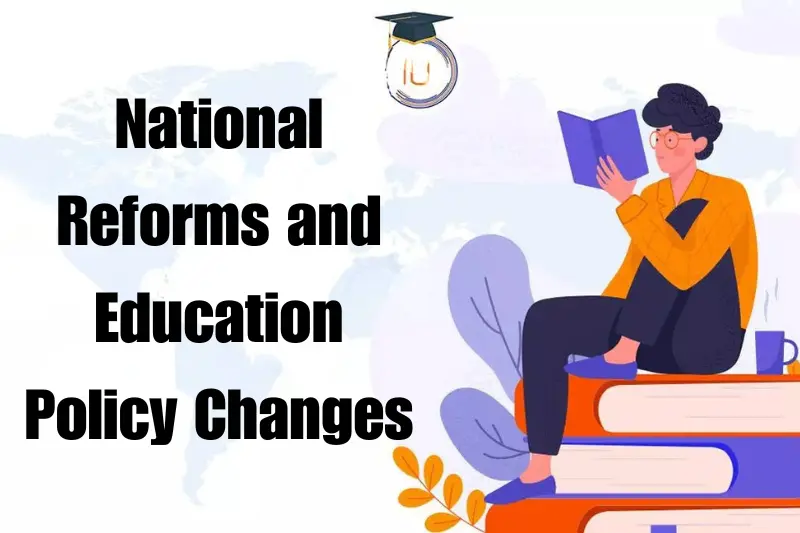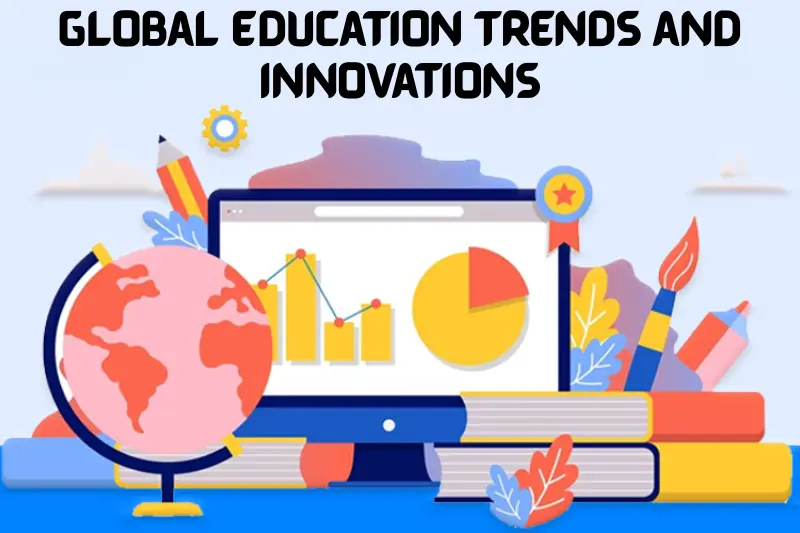Education is constantly evolving to meet the demands of a changing world, and 2025 is a year marked by transformative reforms, technological integration, and a focus on inclusivity in education systems around the globe. From policy changes to new initiatives aimed at improving access and quality, the Latest education updates showcase how the global educational landscape is shifting.
This detailed article will explore the latest developments that are shaping education in both developing and developed nations.
1. National Reforms and Education Policy Changes

Uniform Examination Schedule in Pakistan
In 2025, Pakistan’s Inter Boards Coordination Commission (IBCC) announced a historic move to standardize the examination schedules for all provinces. This national policy aims to bring uniformity in the educational process, particularly when it comes to matriculation (Grade 10) and intermediate (Grade 12) exams.
- Matriculation exams will now be held in March, and Intermediate exams in April. This new timeline is expected to bring consistency across the country, eliminating delays and misalignments in exam schedules that have previously impacted college admissions.
- Results are expected to be announced by June and July, which will better align with the university admission cycles, a much-needed adjustment for students looking to enter higher education.
This change has been met with approval by many education experts, as it promises to enhance the fairness of the exam process and make the educational calendar more predictable for students, educators, and families.
You may also like to read this:
10 Memory Improvement Tips For Students To Remember More
2025 School And College News: What’s New In Education
Top Global Education Policy Changes Reshaping Learning Today
15 Note-Taking Strategies For Students To Boost Learning
Create An Effective Study Schedule Planner For Results
World Bank’s $20 Billion Investment in Education
Pakistan is set to benefit from a $20 billion World Bank investment over the next decade, aimed at improving the country’s educational infrastructure, learning outcomes, and access to quality education. This monumental investment will be utilized to:
- Upgrade schools: Providing more modern facilities, learning materials, and access to technology in schools, particularly in rural and underserved areas.
- Enhance teacher training: Focused on improving teaching methods and pedagogical practices to increase the quality of education.
- Improve inclusivity: Addressing the educational needs of marginalized communities, including girls, children with disabilities, and ethnic minorities.
This financial backing will also assist in ensuring that Pakistan’s education system meets international standards and improves opportunities for future generations.
2. Provincial Education Updates
Punjab’s Academic Calendar and Curriculum Reforms
Punjab, one of Pakistan’s largest provinces, has introduced significant changes in the academic calendar and curriculum for the 2025-26 academic session.
- Exam Schedule: The education department in Punjab has officially announced that exams for matriculation will begin on March 10, 2025, and intermediate exams will take place from April 15, 2025. This marks a shift from previous years, where exams were often delayed due to logistical issues. The results will be announced by the last week of March to align with university admissions.
- Curriculum Revisions: In a move to increase the academic rigor, the marks for Pakistan Studies and Islamic Studies have been doubled from 50 to 100 each, starting from the 2025 academic year. These subjects will now be examined separately in 9th and 10th grades, respectively. These changes reflect a growing emphasis on comprehensive learning in these key subjects of national identity and culture.
Sindh’s Curriculum Reduction and Textbook Review
Sindh, another major province, has introduced a 25% reduction in the curriculum for both matriculation and intermediate exams for the 2025 session. This decision aims to simplify the syllabus and alleviate pressure on students while maintaining the educational standards required for competitive exams.
In addition, Sindh’s Education Ministry is currently undergoing a comprehensive review of textbooks for the 2025-26 academic year. The goal of the review is to align textbooks with modern educational standards and integrate more inclusive content that promotes tolerance, peace, and mutual respect.
3. Inclusivity and Social Education Initiatives
Empowering Transgender Students in Pakistan
A key area of focus in the Latest education updates is the empowerment of marginalized communities, including transgender individuals. In Lahore, the Culinary & Hotel Institute of Pakistan has launched a free six-month culinary training course specifically for transgender students. The program is designed to help students gain professional skills that will allow them to pursue careers in the hospitality industry.
This initiative is part of Pakistan’s broader efforts to promote social inclusivity and ensure that everyone, regardless of gender or sexual orientation, has equal access to educational opportunities and career development. This represents a significant step toward societal acceptance and the dismantling of traditional barriers faced by the transgender community.
Global Gender Equality Initiatives
Globally, the United Nations has also made strides in promoting gender equality in education. The Global Partnership for Education (GPE) is supporting initiatives that seek to reduce the gender gap in education, particularly in developing nations. GPE’s funding is aimed at improving access to education for girls and women in countries facing social and economic challenges.
4. Operational Updates and New Restrictions
Teacher Leave Regulations in Punjab
The Punjab Education Department has imposed a strict leave ban for teachers until February 2025. The ban is designed to ensure that schools remain operational throughout the academic year and that teachers are available to provide consistent instruction to students. Only teachers who are on maternity leave, with a medical certificate, are exempt from this rule.
This measure is part of an ongoing effort to stabilize educational operations in the province and avoid disruptions in learning due to teacher absences. However, there have been concerns raised by teacher unions about the potential negative impacts on teacher morale and job satisfaction.
Physical Punishment Ban in Schools
The ban on physical punishment in schools has been strictly enforced, with punitive actions for any violations. The Punjab government, along with other provincial education departments, is taking active measures to ensure that schools remain safe and supportive environments for all students. This move aligns with international human rights standards, which emphasize the importance of non-violent disciplinary methods in education.
5. Global Education Trends and Innovations

Shifting Education Policies in the United States
The United States is seeing significant debates surrounding its education policy, particularly with the Biden administration pushing forward new funding initiatives. There are ongoing discussions about the future of the U.S. Department of Education, with some political figures suggesting that educational responsibilities could be better managed at the state level rather than federally.
If implemented, this change could result in significant shifts in educational standards, the distribution of federal funding, and curriculum content across various states. The outcome of these debates will likely shape the direction of U.S. education for years to come.
Technological Integration in Education
Across the globe, technology continues to play an increasingly pivotal role in shaping modern education. From the integration of artificial intelligence in classrooms to the rise of virtual learning platforms, technology is enhancing the learning experience and providing opportunities for remote education. Countries like India and China are leading the way in online education, offering new possibilities for students in rural areas to access world-class education without leaving their homes.
Conclusion
The Latest education updates showcase a significant shift towards inclusive education, modernized curriculums, and technological integration. As governments and educational bodies around the world continue to innovate and adapt, the focus is squarely on improving accessibility, equality, and quality in education.
The future of education will likely see further policy changes, technological advancements, and an ongoing focus on social equity. The global investment in education is one of the most encouraging signs that the world is committed to ensuring that education remains a universal right, regardless of a person’s background or circumstances.
As we progress through 2025 and beyond, these developments will not only redefine how we learn but also open new opportunities for students from all walks of life to thrive.








